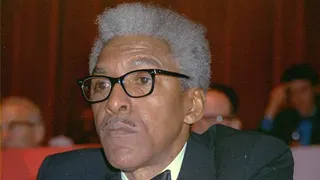July 11, 2018
The Critical Importance of LGBTQ Health Care Bill of Rights
READ TIME: 4 MIN.
By Arthur Fitting, RN, LGBT Program Director, Visiting Nurse Service of New York
There's an adage: "With age comes wisdom." Applying that adage to our current health care environment is the next significant challenge for all of us in the LGBTQ community - especially those of us in the Stonewall generation who fought to gain acceptance and rights that were once unimaginable. We've come such a long way since the days when being gay, lesbian or bisexual was considered criminal, sacrilegious or mentally ill behavior.
Now we need to ensure that the health care industry completes that journey with us-and there's no better time to focus on this challenge than right now, in the midst of Pride celebrations across the country and the 50th anniversary of Stonewall in 2019.
Based on data from SAGE (Services and Advocacy for GLBT Elders), there are approximately three million LGBTQ adults over the age of 50 in the U.S., and that number is expected to grow to around seven million by the year 2030. As with all age groups, we, as members of the older LGBTQ population, face our specific health concerns. According to SAGE:
As a registered nurse working on the front lines for nearly 30 years, I've tried to face these disparities head on. And while we've come a long way with rights like marriage and adoption, we need to keep going, especially where health care is concerned. Today, many older LGBTQ people still find it difficult to find a physician or other healthcare professional they feel comfortable talking to. As a result, they often avoid seeking care until faced with an emergency situation.
My goal as LGBT Program Director for the Visiting Nurse Service of New York (VNSNY) is to work with my colleagues to help bridge this gap. A good starting point is New York City's LGBTQ Health Care Bill of Rights. First announced one year ago by Dr. Mary Travis Bassett, MD, MPH, New York City's Commissioner of Health, this is a critical piece of healthcare information that empowers those of us in the LGBTQ community to take responsibility for our health. It lays out 10 important legal rights that every older LGBTQ person can assert, in any healthcare situation.
The LGBTQ Health Care Bill of Rights
In any health care setting or health care interaction, you have the right to:
1. Be treated with dignity, respect and professionalism by all providers and all staff.
2. Receive compassionate, judgment-free and comprehensive care that is mindful of your sexual orientation, gender identity and gender expression.
3. Respectful discussions with providers about your health and health care needs, including your sexual history and current sex life.
4. Have your gender identity and gender expression recognized, affirmed, documented and accommodated.
5. Clear explanations of requests for your health information.
6. Clear explanations of all medical procedures and risks, and the right to choose or refuse any treatment.
7. Access health insurance coverage and benefits without discrimination based on sexual orientation, gender identity or gender expression.
8. Choose who will make medical decisions for you if you are unable. If you are a minor, you have the right to have your voice heard and best interests included in these decisions.
9. Decide who may and may not visit you if you are admitted to a health care facility.
10. Privacy and confidentiality.
As a nurse, I've met so many LGBTQ people of all ages who still live in fear, and to whom these basic rights have been withheld, miscommunicated or culturally garbled, much like that old game of "telephone." But it doesn't have to be that way, which is why my colleagues and I are working so hard to educate our fellow New Yorkers about these rights, as well as the steps people can take to ensure they are upheld.
New York City provides several options for anyone who feels that their rights have been denied. If you believe you have been mistreated or denied care because of your sexual orientation, gender identity or gender expression, you can call The New York City Commission on Human Rights at 718-722-3131, or call 311, or file a complaint online to report discrimination. For issues in another part of the country, get help here.
Maintaining our health and navigating the healthcare system can be a difficult balancing act -- especially as we age. Please keep this information close at hand, and remember, we should never get sick due to silence or fear!






